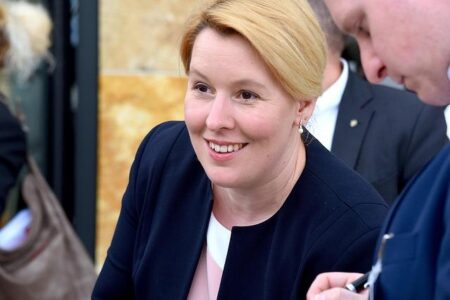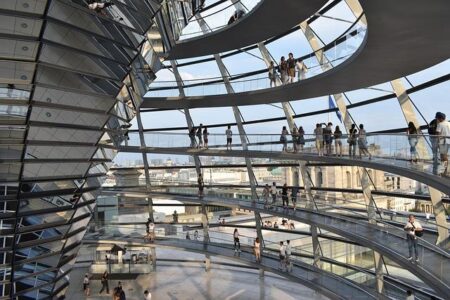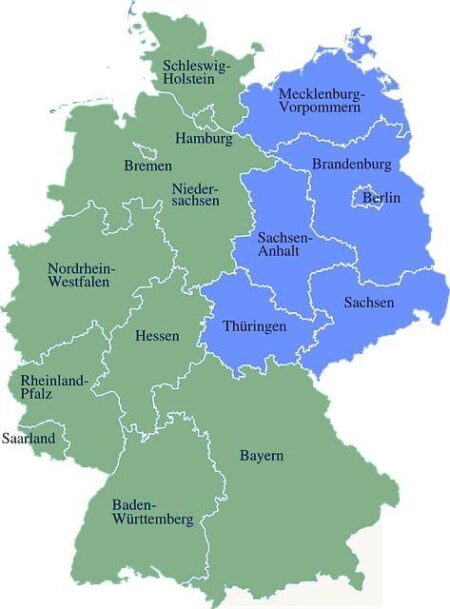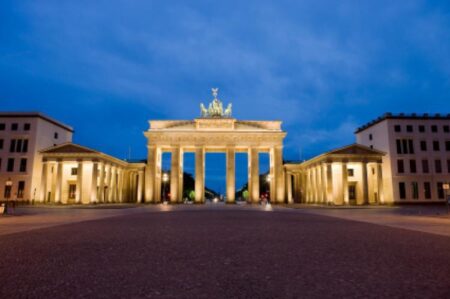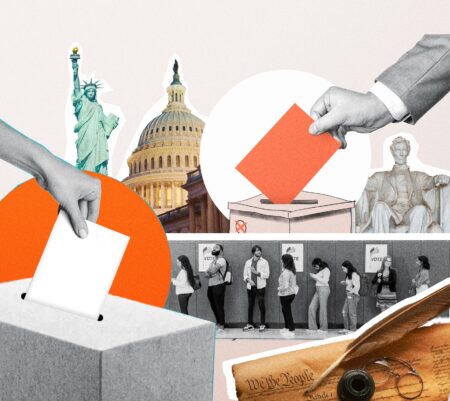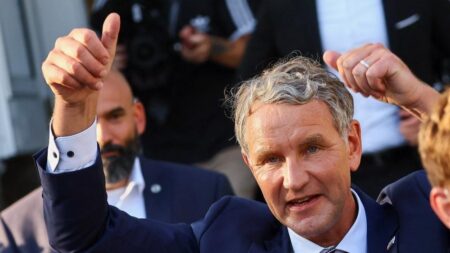German Chancellor urges Europe to slash red tape and boost defense spending amid rising geopolitical tensions. Emphasizing the strength found in unity, the leader calls for swift action to fortify Europe’s security capabilities
Browsing: German politics
Germany’s Finance Minister Friedrich Merz warmly welcomed soldiers and police officers to a special reception, honoring their crucial role in safeguarding the nation. The event highlighted the government’s unwavering dedication to supporting the brave men and women who protect and serve
Germany’s Chancellor Friedrich Merz has launched an energetic visit to India, set to ignite stronger trade, security, and labor partnerships. The talks focused on strengthening bilateral bonds and exploring thrilling new opportunities for collaboration, AzerNews reports
Germany has impressively slashed migrant arrivals by half in just a few months. Now, experts are buzzing with debate: Is Finance Minister Merz’s tougher immigration stance the main force behind this sharp decline, or are other policy shifts and external factors playing a bigger role?
The ruling coalition in the eastern German state has shattered, thrusting the region into a whirlwind of political uncertainty. Fierce disagreements over policy and leadership ignited the collapse, paving the way for a dramatic showdown in the upcoming elections, Reuters reports
A vibrant left-wing party is shaking up Germany’s political landscape, boldly challenging the entrenched centrist dominance with fiery calls for sweeping social reforms and greater economic equality-signaling thrilling changes just over the horizon
In his New Year’s message, Germany’s Friedrich Merz boldly proclaimed that the nation will no longer be a mere “pawn” in global power struggles. Meanwhile, Vladimir Putin stayed under the radar, focusing his attention inward on domestic affairs, TVP World reports
Germany’s family minister is championing a bold new ban on social media for teens, spotlighting its power to enhance mental health and promote healthy growth. This groundbreaking proposal aims to protect young users from online risks, sparking a vibrant nationwide debate
Germany’s far-right AfD is poised for a major breakthrough in the 2026 regional elections, igniting widespread concern about the party’s growing influence and the dramatic changes it could unleash on the nation’s political landscape, DW reports
Germany’s hotly debated pension package narrowly passed a crucial CDU test vote, marking a turning point amid intense party clashes. Crafted to protect retirement benefits, the plan now faces major political challenges on the road ahead
Rallies erupted across Germany as crowds flooded the streets to confront the rise of the far-right AfD youth group. Determined demonstrators united, raising their voices in a powerful stand against the spreading danger of extremist ideologies creeping into the heart of the nation’s politics
Germany’s far-right party has launched its new youth wing, sparking a fierce public backlash. Across the country, thousands flooded the streets, passionately protesting and condemning the move amid rising concerns over extremist influence
Bavarian Premier Markus Söder has reignited the nuclear debate with a bold call for Germany to reconsider its nuclear phase-out amid rising energy security concerns. This daring proposal challenges the country’s green energy goals, sparking a heated political battle
PBS explores the explosive rise of Germany’s New Right, uncovering dynamic nationalist movements that are reshaping the country’s political landscape. This dramatic shift raises urgent questions about the future of democracy and social cohesion in Europe’s largest economy
Germany’s domestic intelligence agency marks a remarkable milestone, highlighting its impressive victories in counterterrorism and groundbreaking innovations in cybersecurity. The agency proudly showcases enhanced threat detection skills and fortified alliances with global partners
Germany’s CDU leader Friedrich Merz is facing intense backlash after a controversial comment on deportations sparked widespread accusations of racism. His statement has ignited a heated debate about immigration policy and the complex challenges of integration
On Germany’s Day of German Unity, a leading conservative newspaper unleashed a powerful critique of Lenin, sparking a fiery debate over the interpretation of history. The World Socialist Web Site explores this intense clash over Germany’s communist past and its lasting influence on modern society
On German Unity Day, Friedrich Merz issued a stirring warning: democracies worldwide face growing dangers from surging populism and authoritarianism. He urged every citizen to rise up and defend our democratic values, stressing that the future of our freedom and stability hangs in the balance
Germany is carefully considering its position on the EU’s proposed sanctions against Israel, Finance Minister Christian Lindner revealed. At the same time, Chancellor Olaf Scholz emphasized the lively and ongoing discussions taking place throughout the bloc, Bloomberg reports
The far-right party is making a powerful surge in North Rhine-Westphalia, the home state of CDU leader Friedrich Merz, signaling a rising wave of support amid intensifying political tensions, Bloomberg.com reports





